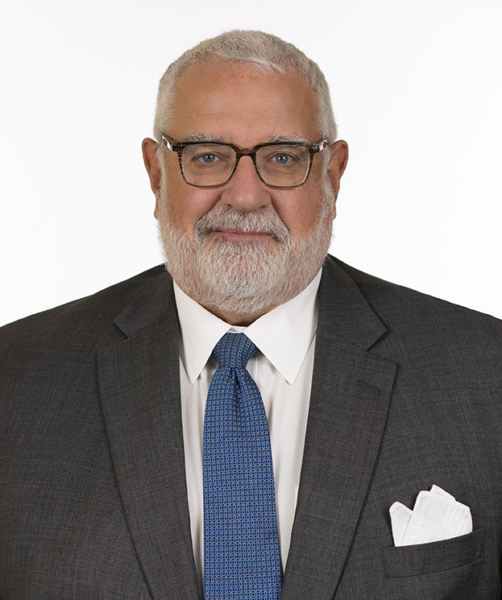We wanted to do something a little different and have this issue of the Lumber Memo be solely focused on claims. Along those lines, I will begin my opening commentary with some thoughts about the types of claims we see in the lumber niche, and perhaps why it’s important to choose to place your property, general liability, auto, and umbrella coverage with a company that understands your business and the types of losses that your business encounters.
I will also briefly comment on why we do not write workers’ compensation within the PLM company and choose to refer that business to our wholesale agency, Green Tree Risk Partners. Believe it or not, the decision to not underwrite workers’ compensation within PLM is all about claims capability.
Understanding the Lumber Industry
From an insurance perspective, lumber and forestry businesses are considered to be a low frequency/high severity claim environment. In other words, businesses that operate in this niche tend to not have a lot of small claims (low frequency), rather they lean towards fewer but larger claims (high severity). Most businesses in any segment of the economy fall into the frequency category while there are some specific niches, like lumber, that are driven by high severity.
It makes sense that the lumber niche would be considered high severity. If you fill a building with wood fiber and introduce an ignition source, you can be pretty sure that the fire that follows is going to be severe in nature, otherwise you can consider yourself lucky. Likewise, if you put 80,000 pounds of lumber on a truck, and it runs into something, in today’s world you can expect a large loss, even when the physical damage done to the other party’s vehicle may be minor. Finally, attach a crane to that truck to lift material or put a Moffett on the back of the truck, and you have a whole new exposure to deal with!
So now, ask yourself a question. When you have a loss and report it to your insurance company, don’t you want to be dealing with claims professionals that understand your business and are familiar with the losses that arise from these types of operations? Wouldn’t you want to work with a company that is well-versed in the terminology used in your industry from things like a Moffett, or a skidder, the green chain, or auto stacker? Don’t you want to work with a claims professional that has actually walked through facilities like yours? Someone that has experience with a sole focus on getting businesses such as yours back up and running quickly and efficiently. Someone who is only working on wood or forestry-related claims rather than one who worked on a restaurant claim in the morning, and after they are done with your claim, is going to work on a church claim. The point being is that someone with a specialty (in this case, wood/lumber/forestry) is going to be more of an expert, and with specialization or expertise comes efficiency and effectiveness. That combined with open communication with senior level people, allows one to expect quicker results and a fairer settlement.
Claims are nuanced across the country and by being an expert, we understand those nuances. A good example of this is with construction defect claims, a type of claim that we see regularly in this industry. With nearly 130 years of experience, we’ve learned where to expect construction defect claims and we understand that your exposure in this type of claim is often limited. This allows us to create a strategy to handle these claims effectively. There might be defense costs associated with these claims but in most cases, the claim settlement will not be significant. A win for both of us. Talk to another insurance carrier that does not understand this and you could be looking at a different experience. A general carrier may be quick to react in another way that leads to extra time and extra claims dollars paid out.
Placing Workers’ Compensation
To understand how serious at PLM we are about the importance of being an expert, we need to bring workers’ compensation into the conversation. PLM could write workers’ compensation because we do know how to underwrite and price it, as well as how to do the risk management work on it. In truth, many of our claims representatives have handled workers’ compensation in one state or another in a prior career. But therein lies the problem – to handle workers’ comp claims correctly you need to be an industry-specific workers’ compensation expert in every jurisdiction, all of whom have a different set of rules and regulations to follow. This is why we refer workers’ compensation to our wholesale agency, Green Tree Risk Partners. Green Tree is able to procure workers’ compensation with one of several A-rated, national carriers with the needed expertise in your jurisdiction. Keep in mind if the insurance carrier does not handle the comp claim well, it affects your experience mod, usually not for the better!
Buying Value
Every year we pick up new accounts because an insured, through no fault of their own, suffered multi-million dollar losses, and their insurance carrier non-renewed their account. That is because carriers that expect a frequency of loss panic when a severe loss comes through! We at PLM, on the other hand, ask if the loss is truly fortuitous, and not a result of lack of loss control or management involvement before we react.
We are in the business of paying claims. When a claim occurs, any claim, it is not the time to figure out what went wrong. There is plenty of time for that down the line. It is the time to work closely with the insured to get their business stabilized, and to build a joint plan to get the business rebuilt and up and running. In most cases, getting things back to normal is good for everyone. Insurance carriers need to understand that claims are not like fine bottles of wine, they do not get better with age!
I often shake my head when a potential insured is looking for simply the cheapest price. I tell our salespeople and brokers all the time, if that is the prospect’s game plan, to close their file and walk away. I learned a long time ago that you “get what you pay for”. Claims payments are one of the largest expenses associated with an insurance company. Many have turned insurance into a commodity where the cheapest price carries the day. In my world, to get the best claims service, risk management support, and underwriting professionals, it costs money. Price is also a function of the coverage and the coverage levels provided by the policy. You have to be comfortable that the insurance company that issues the policy is going to be there when you need it. Today, we are working on claims that occurred years ago, in one case during the 1950’s, and more than a handful that occurred in the 1960’s, 70’s and 80’s. We also, on a regular basis, must inform some businesses that we were not their insurance carrier all those years ago. That their insurance carrier had a similar name but has since gone out of business and their only recourse is to get in line at the insurance department.
Years ago, I had an insured call me to complain about a price increase on their insurance. He paid us about $50,000 a year, and I really do not recall how much the increase was. He informed me that we had insured him for 20 years and he had never suffered a loss. Sound familiar? Most accounts that suffer large losses in this industry have never had a loss before. I explained to him all the above, and he told me that he was going to move his insurance. I thanked him for his loyalty and wished him well. Before the end of that week his business burned to the ground, and he presented a two- or three-million-dollar loss. In the twenty years we had insured him, I don’t think we collected a million dollars of premium. If we charged him $50k a year for another 20 years, we would have only broken even on the deal. He renewed his insurance with us, and we got him back up and running as soon as possible.
Insurance is all about collecting money from many and paying it out to a few. That is the nature of our business: to gather a group of like-minded and similar insureds (in our case operating in the same industry), build deep expertise, offer a fair price, and deliver great value, particularly when it matters most — at the time of the claim. To do that for almost 130 years in the wood niche, you better know what you are doing, and you better have a claims process that is tight, effective, and efficient. That does not come cheaply, but the value we deliver, that is what it’s all about!
In this issue, we will go deeper into some of the claims trends we are seeing in this industry, as well as important basics like how to submit a claim. When a loss occurs, we want you to feel secure knowing that we are here to assist you through the process. There have been times where the call has come in the middle of the night, and our claims staff has been ready to answer that call and have a person out to the customer the very next day. You can reach out to John Kennealy, our Vice President of Claims, at jkennealy@plmins.com or at (267) 825-9398.
If you have any thoughts or comments, please pass them along! You can reach me at my email at jsmith@plmins.com.
Lumber Memo: Issue 3 – 2023
IN THIS ISSUE:
- President’s Commentary
- Scam on the Rise: Check Fraud
- The Dovetail: Combatting Costly Litigation: How Lumber Businesses Can Stay Ahead
- Plumb Safety: Protecting Your Business Against Weather-Related Claims
- Prevent, Learn, Maximize: Lessons from Large Losses
- How to Submit a Claim to PLM
- Spotlight On: Upcoming Events List




